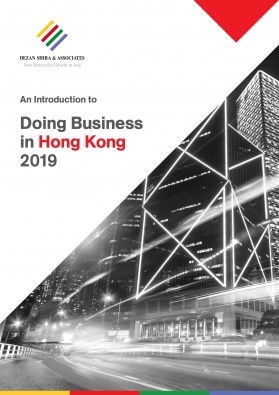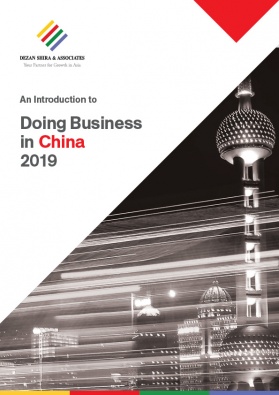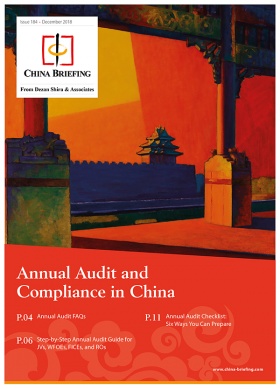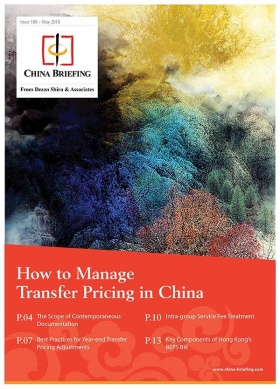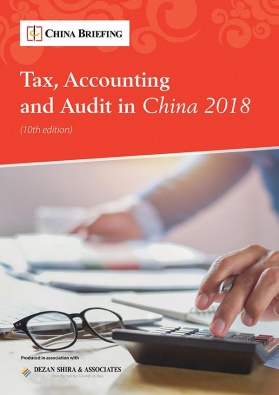Hong Kong’s Companies (Amendment) Ordinance, 2018: Register Significant Controllers

Hong Kong’s Companies Ordinance (Amendment), 2018 (the “Ordinance”) (see link here) introduces new requirements for registering significant controllers.
The Ordinance, which came into effect on March 1, 2018 prescribes that Hong Kong companies formed and registered under the Companies Ordinance are to identify a person(s) to be the company’s ‘Significant Controller’ (“SC”), as well as a Designated Representative (“DR”).
This requirement applies to companies that are limited by shares, companies limited by guarantee, and unlimited companies. Companies that have their shares listed on the Hong Kong Stock Exchange, however, are exempt.
Maintaining a significant controllers register
In addition, under the new regime, Hong Kong companies must maintain a significant controllers register (“SCR”).
This means, keeping a detailed record of every SC and DR of the company, steps they have taken to identify such person(s), any changes that are made to the record, as well as additional matters required under new Schedule 5C of the Ordinance.
Companies must also record the steps they have taken to identify SCs, along with any changes that are made to the record.
While the SCR is an internal record only and not required for public filing, it will need to be made accessible by law enforcement officers upon demand, updated regularly and kept, in electronic or hard copy form, at the company’s registered office or at a prescribed place in Hong Kong.
Penalty for incompliance
Failure to comply with the requirements set forward in the Ordinance could qualify as a criminal offence.
The company and every responsible person in breach of the Ordinance could be liable to a fine levied at HK$25,000 (US$3,200) and, where applicable, a further daily fine.
Hong Kong companies should take time to ensure that they comply with all the requirements of the Ordinance to avoid these hefty fines.
Enforcement of the Ordinance can be exercised by any of the following authorities:
- Companies Registry;
- Custom and Excise Department;
- Hong Kong Monetary Authority;
- Hong Kong Police Force;
- Immigration Department;
- Inland Revenue Department;
- Insurance Authority;
- Independent Commission Against Corruption; and
- Securities and Futures Commission.
The new SCR requirements introduced by the Ordinance are part of a wider effort to increase transparency of corporate beneficial ownership in Hong Kong to combat money laundering, tax evasion, and terrorist financing.
In addition to amending the Companies Ordinance Law, Hong Kong also introduced a BEPS bill around the same time, to strengthen its transfer pricing regime.
Who is a significant controller?
A significant controller is a person or legal entity who meets one or more of the following conditions:
- Holds, directly or indirectly, more than 25 percent of the company’s issued shares or a right to share more than 25 percent of the capital or profits of the company;
- Holds, directly or indirectly, more than 25 percent of the voting rights of the company;
- Holds, directly or indirectly, the right to appoint or remove the majority of the board of directors of the company;
- Has the right to exercise, or actually exercises, significant influence or control over the company; or
- Has the right to exercise, or actually exercises, significant influence or control over the activities of a trust or a firm that is not a legal person, but whose trustees or members satisfy any of the above four conditions in relation to the company.
To identify an SC, companies can review their register of members, articles of association, shareholders agreements, and other relevant agreements, or invite an evaluation from an outside organization.
If a company knows or has reasonable reason to believe that a person is an SC, the company must notify them within seven days of such knowledge.
Who is a designated representative?
A company must designate at least one person as its representative to assist on matters relating to the company’s SCR to a law enforcement officer where required.
As required by the Ordinance, a DR must be one of the following:
- A member, director, or an employee of the company who is a natural person resident in Hong Kong; or
- An accounting professional, a legal professional, or a Trust and Company Service Providers licensee as defined under Cap. 615.
If a Hong Kong company does not have an eligible DR, they can enlist a third-party service provider to act as the DR.
(Editor’s Note: This article was originally published on February 27, 2018 and has been updated.)
About Us
China Briefing is produced by Dezan Shira & Associates. The firm assists foreign investors throughout Asia from offices across the world, including in Dalian, Beijing, Shanghai, Guangzhou, Shenzhen, and Hong Kong. Readers may write china@dezshira.com for more support on doing business in China.
- Previous Article Annual Audit and Compliance in China – New Issue of China Briefing Magazine
- Next Article The Survival Guide: Foreign-Owned Service Providers and Manufacturers in China Must Find New Trade Corridors and Supply Chains in 2019


